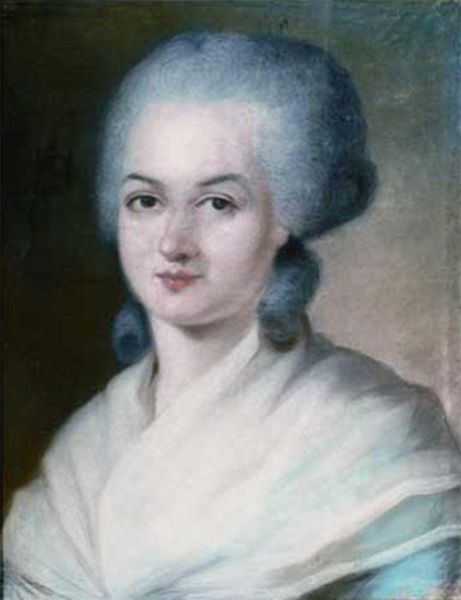“Women, wake up; the tocsin of reason sounds throughout the universe; recognize your rights.” – Olympe de Gouges1
The eighteenth century, the Age of the Enlightenment, was a time of radical advances for social change. It brought to the world a different perspective on how life should be lived, and on what the purpose of life ought to be. It was a period in the history of western thought and culture, stretching roughly from the mid-decades of the seventeenth century through the eighteenth century, characterized by dramatic revolutions in science, philosophy, society, and politics; these revolutions swept away the vestiges of the medieval world-view and ushered in our modern western world.2 There was Voltaire and his influential poems, essays, and books; Jean-Jacques Rousseau and his Discourse on Inequality; John Locke and his essay Concerning Human Understanding; the American “Founding Fathers” and their Declaration of Independence and Constitution; as well as the Declaration of the Rights of Man and of the Citizen passed by France’s National Constituent Assembly. However, despite these political and cultural advances, an ongoing pattern of social inequality remained; in the eighteenth century, men believed that women did not have the intellectual capacity to fully participate in the public sphere. That meant that it was very difficult for a woman to express her point of view on certain issues publicly, let alone have anyone listen.3 Even though women were not truly afforded a voice during this time, some still managed to make themselves heard. In fact, the woman Olympe de Gouges became the things she was told she could not be: a writer of Enlightenment philosophy, an author of political documents, a rational human being engaged in discourse over principles and strategy. This is her story.
Olympe de Gouges was born on May 7, 1748, with the name Marie Gouze, which she changed to Marie Aubry when she married at sixteen. The marriage didn’t last long because in 1765 her husband died; she then changed her name to Olympe de Gouges, moved to Paris, and vowed to never marry again.4 Being a woman in the eighteenth century, she was literate but not really well-read. Thus, as any strong woman would, she spent the next decade informing herself on intellectual and political matters. Gouges continually worked to better herself, creating a new personal identity and image.5
She also decided that it was time for her to follow her dream to become a playwright. However, being a playwright was not an acceptable occupation for a woman in the eighteenth century, and she constantly worked to earn her recognition. In 1784, Gouges began writing plays that portrayed her political opinions. Most of her plays highlighted controversial issues, such as slavery, divorce, the marriageability of priests and nuns, girls forcibly being sent to convents, the scandal of imprisonment for debt, and sexual double-standards between men and women.6 Although Gouges had spent numerous years remaking herself as an educated individual, she was still only a woman. She received constant criticism that did not reflect who she was as an intellect. For example, she was constantly accused of being illiterate, but her familiarity with Molière, Paine, Diderot, Rousseau, Voltaire, and many others, as well as the way she responded to the criticism, proved that the accusations were untrue.
In June of 1789, the French Revolution began, starting with the storming of the Bastille on July 14. Gouges decided that she too was going to fight. She decided to fight in order to combat a society she felt was corrupt, in which women were particularly the victims of oppression and injustice.7 She fervently believed that women’s rights were going to be one of the outcomes of the French Revolution.

That same year, on the 26th of August, the Declaration of the Rights of Man and the Citizen was passed by France’s National Constituent Assembly, which was the death knell for any hopes of women’s rights. The summary of the declaration was that women were not granted full citizenship and equal rights. The declaration was in part inspired by Rousseau’s perspective on gender relations, namely that women had no business in politics.8 How was it possible that men were so closed-minded that they couldn’t recognize that women were also participants in the Revolution? Gouges was not going to be silent. She wrote and published a response to the preamble of the Declaration of the Rights of Man and the Citizen because she felt it was necessary to shine a light on the fact that the preamble was silent on the issue of women’s rights.9
Gouges’ pamphlet, the Declaration of the Rights of Woman and the Citizen, was published in the paper in 1791, and called for women to be given equal rights to men, protection of their rights as mothers, and other rights.10 Over the course of seventeen articles, Gouges’ Declaration detailed what these rights should be–liberty, property, security, and resistance to oppression. Just as men had positions in the government, her document stated that women should have the right to participate in government and lawmaking, as well as be afforded the freedom of speech. She also stated that women were obligated to follow the law, and if they break the law, they should be convicted. Included in the Declaration was a personal letter to Queen Marie Antoinette, asking the Queen to help other women who were fighting for equal representation and participation in the Constitutional Monarchy being formed.11
After the establishment of the first French Republic, Gouges knew that if she kept on trying to fight for her rights and for the rights of all women, she would be putting her life at risk; but that didn’t stop her. In 1793, Gouges published “Les Trois urnes, ou le salut de la partie, par un voyageur áerien,” or “The Three Urns, or the Salvation of the Fatherland, By An Aerial Traveller,” which was a document that proposed government reform by the vote of the people. She thought that, in order for France to become a true republic, the people should choose their leaders by secret ballot. In September 1793, while she was passing out posters of the pamphlet, she was arrested and brought to trial before the Revolutionary Tribunal.12 She spent three months in jail without an attorney, trying to defend herself. The presiding judge denied Gouges her legal right to a lawyer on the grounds that she was more than capable of representing herself. It seemed as though the judge based this argument on Gouges’s tendency to represent herself well in her writings. Gouges knew that death was a possible outcome of her arrest, but she did not keep silent. She held her strong philosophical and political opinions, and she fearlessly stood up for women’s rights whenever she had the chance to speak. Even in jail she managed to publish two texts: Olympe de Gouges au tribunal révolutionnaire (Olympe de Gouges at the Revolutionary Tribunal), in which she related her interrogations; and her last work, Une patriote persécutée (A [female] Patriot Persecuted).13

On November 2, 1793, Gouges was accused of composing and printing works that were considered to be an attack on the sovereignty of the people.14 On November 3, 1793, Olympe de Gouges was sent to the guillotine for execution. Gouges ascended the scaffold at 4 p.m.; she looked into the assembled crowd and said, “’Children of the Fatherland, you will avenge my death’ [and] cries of ‘Vive la République’ were heard among the spectators waving hats in the air.”15 Two-hundred and twenty-two years have passed since the execution of the amazing Olympe de Gouges, and I believe that, with our advances in women’s rights and human rights in general, that we have indeed avenged her death.
- Olympe de Gouges, The Declaration of the Rights of Woman in the French Revolution and Human Rights: a Brief Documentary History, Trans. and ed. by Lynn Hunt (Boston: St. Martin’s Press, 1996), 125. ↵
- Stanford Encyclopedia of Philosophy, August 2010, s.v. “Enlightenment,” by William Bristow. ↵
- Darline Gay Levy et al., Women in Revolutionary Paris: 1789-1795 (Illinois: University of Illinois Press, 1979), 65. ↵
- Encyclopedia of Philosophy, February 2011, s.v. “Olympe de Gouges,” by Joan Woolfrey. ↵
- Sara E. Melzer and Leslie W. Rabine, Women and the French Revolution, eds. Rebel Daughters (New York: Oxford University Press, 1992), 108. ↵
- Encyclopedia of Philosophy, February 2011, s.v. “Olympe de Gouges,” by Joan Woolfrey. ↵
- Shirley Elson Roessler, Out of the Shadows: Women and Politics in the French Revolution, 1789-95 (New York: Peter Lang Publishing, 1998), 64. ↵
- Encyclopedia of Philosophy, February 2011, s.v. “Olympe de Gouges,” by Joan Woolfrey. ↵
- Darline Gay Levy et al., Women in Revolutionary Paris: 1789-1795 (Illinois: University of Illinois Press, 1979), 65. ↵
- Encyclopedia of Philosophy, February 2011, s.v. “Olympe de Gouges,” by Joan Woolfrey. ↵
- Olympe de Gouges, “Declaration of the Rights of Woman and the Citizen,” in The French Revolution and Human Rights: a Brief Documentary History, Trans. and ed. by Lynn Hunt (Boston: St. Martin’s Press, 1996), 129. ↵
- Encyclopedia of Philosophy, February 2011, s.v. “Olympe de Gouges,” by Joan Woolfrey. ↵
- Janie Vanpée, Performing Justice: The Trials of Olympe de Gouges (Baltimore: The John Hopkins University Press, 1999), 47. ↵
- Darline Gay Levy et al., Women in Revolutionary Paris: 1789-1795 (Illinois: University of Illinois Press, 1979), 255. ↵
- Joan B. Landes, Visualizing the Nation: Gender, Representation, and Revolution in Eighteenth-Century France (New York: Cornell University Press, 2001), 259. ↵



38 comments
Victoria Cantu
Such an empowering article! Olympe de Gouges protested against the Constitution and the Declaration of Rights of Man and Citizen because they did not even give basic political rights to women. This was over-ordinary and shows the great acts of braveness she carried. Her actions and diligent efforts spoken about in this article were impactful and illuminating. The last paragraph of this article going into detail about the execution of Gouges was powerful. Excellent work!
Madeline Chandler
Such an informative and interesting article! Very captivating. Honestly I am unfamiliar with this side of French history and wish I knew more. I knew that France had issues with not representing women yet I had no idea that women fought back . This article gave such great information about Olympe de Gouges and what she believed in regarding women’s rights. As well as the transition of a country during a time for women fighting for what they believe in. Because of this article it gave great insight into French history. I loved reading your article. Great job!
Sara Guerrero
Learning for the first time about Olympe de Gouges she showed determination to go against the norms of society. Men didn’t think that women had the same intelligence or the same way of thinking which she proved was wrong. It’s unfortunate that she was executed for what she wrote. I totally agree that women have more rights today and society as a whole has changed.
Aaron Sandoval
This article covers someone that I have learned nothing about, and because of this article, I am better able to understand this period of history. I found this article very interesting, mainly because how you mentioned this was an era of advancement in major fields of life, but still, women were not treated as such and proved that advancements were always necessary, and continuing to ignore the talents and gifts that people have regardless of gender or race limits the potential for advancements for us all.
Lesley Martinez
The Age of Enlightenment introduced new ways of thinking and living. All while leaving women’s rights behind. Olympe de Gouges changed the social norms in France as she became a writer of Enlightenment philosophy, political author, playwriter, and a women’s activist. Her willingness to create a contrary declaration that she called the Declaration of the Rights of Women and the Citizen during the French Revolution is inspiring and not something many would have done. It is because of women like Gouges that women began to fight for the rights we deserve. Her death was tragic, but she died fighting for what she believed in. Great article!
Hali Garcia
Olympe de Gouges fought for what she believed in and refused to stand back. It is amazing how she educated herself more and fought for women’s rights. She continued to speak her mind even when it could have cost her life, which it did in the end. What struck me was how she wrote a response to the Declaration of the Rights of Man stating that women also had the same rights, and continued to write even when she was in jail.
Antonio Holverstott
This article presents the true nature of the French Revolution. The story of Olympe de Gouges demonstrated that women experienced discrimination on the basis of gender under the same government officials who demanded freedom from an oppressive monarchy which they executed. Some claim that women had better rights during the Revolution before Napoleon took power as the Emperor of France, however, this story proves that this type of prejudice was from the very beginning.
Samuel Vega
Olympe de Gouges challenged France on social justice issues. This was a difficult time for women because many men did not feel that women belonged in the political sphere. The French Revolution began with women taking a stand against French rule. More than 60,000 women started a march against the monarch protesting the price and scarcity of bread. These women were inspired by Olympe de Gouge. The article is a good reminder of how challenging it is for women to be heard throughout history. The women kept fighting for equal justice.
Christopher Hohman
Nice article. Olympic De Gouges was quite a trailblazer that unfortunately was way ahead of her time. Her writings and stance on woman’s rights were quite revolutionary as she was one of the only people speaking about that important issue at the time. In the world that we live in today I am sure that she would be happy that many people both men and women have headed her words and those of others. Despite the progress that has been made since then we still have a long way to go.
Danielle Slaughter
As a political science major myself with a deep love for the written word, the story of Olympe de Gouges radiates with me on a personal level. To imagine a time when women were thought of as mere second-class playthings is a terrifying prospect indeed. Olympe de Gouges defied that expectation through her unabashed pamphlets and plays, which ultimately cost her her own life. Even still, she has definitely earned a place in history’s hall of fame.